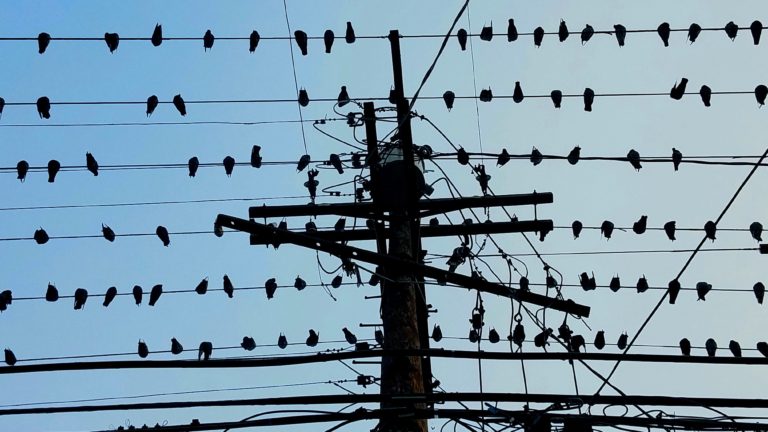Marco Daniele-Fiction
I will endure martyrdom, Kojirō tells himself, before they hit him on the back of the head. This time the...

Fume-E
Chirp chirp chirp.
The chirping of crickets prevents him from sleeping a wink.
Perhaps it is the stench of the room where eight of them are crammed together.
Or again, the pangs of fear.
Chirp chirp chirp.
Kojirō huddles in the corner, enveloped by darkness that serves as a blanket. His face is buried between his knees, and his gaze is fixed on the muddy floor. However, he does not see the dirt beneath him. Instead, vivid scenes of martyrdom, recounted countless times by Father Sebastião to the village’s youth, unfold before his eyes.
The boy shudders as he envisions himself in the role of a tortured saint. In his waking nightmare, the torturers bind him to a post, leaving him with only the modesty of a tattered fundoshi. They line up before him, and with sadistic calm nock their arrows and draw their bows. He imagines them as spiders that have ensnared their prey in the web and can allow themselves the luxury of slowness. The sound of snapping ropes splits the air just before the flesh is pierced by those relentless darts.
For Kojirō, it is too much. A scream erupts from his throat: “Mercy!”
Chirp chirp chirp.
“Are you okay, son?”
Kojirō looks up, his eyes brimming with tears.
Elder Gen’emon’s face is a yellowish tapestry of wrinkles, reminiscent of the nets he has handled for years as a fisherman. His hands are calloused; however, when he places them on the boy’s shoulders, his touch is gentle.
“We must be strong, as Sebastião-shinpusama taught us,” continues Gen’emon. “We must be strong, as the Christian fathers taught us when they could still walk on this earth, before God called us to this test of faith.”
It’s not a test of faith, Kojirō would like to say. If God embodies love and goodness, why does He permit His children to suffer the torment of their persecutors? If God understands the soul of each one, why does He feel the need to test the faith of those who believe in Him? If God is omnipotent, why doesn’t He punish the enemies of His people with a rain of fire?
But those words die in his throat. Shame holds him back, of course, but so does the security of the old man. If Gen’emon trusts so fervently in Our Lord, who am I to express doubts?, Kojirō thinks to himself.
Chirp chirp chirp.
“Better to sleep”, says the old man. “You’ll see that tomorrow it will all be over, son. Sebastião-shinpusama has hidden himself well you-know-where. They won’t find him and will be forced to let us go. The magistrate isn’t that cruel after all.”
Kojirō simply nods.
“They say he is a reasonable man, continues Gen’emon. “Not too cruel and never unfair. He certainly knows that the religious whims of a handful of Fukue fishermen cannot concern the shogunal power. We are like horseflies disturbing a majestic elephant…”
“Ele-what?” Kojirō asks.
The lips of his interlocutor curl into a smile, making his face appear even more wrinkled. “A gigantic creature resides in the lands beyond the sea to the south. When I was young, oh, very young, back when there wasn’t even a shogun in Edo, my dear father and I were caught in a storm while fishing offshore. We ended up, I don’t want to exaggerate, three or four ri from the coast. It would have meant certain death if a Portuguese vessel bound for Malacca hadn’t rescued us from the sea…”
Kojirō is well aware of that story, even if it is the first time the old Gen’emon associates it to an elephant. He can recite the names of the places the old man mentions, places he will never visit, because the vast expanse of saltwater that begins at his village and stretches to the horizon marks the boundary of his entire world.
Only at that moment does he glance at his fellow companions in misfortune. Seibē, Sannojō, and Jin’emon are adult men hardened by the life of fishermen. Their faces do not reveal anxiety but rather exhibit stoic resignation. Iroha and Chiko, little more than girls, have fallen asleep under the whirlwind of emotions unleashed by their imprisonment. Aunt Mego, her face stony and eyes dry after shedding all the tears she had left, gently strokes their hair.
Chirp chirp chirp.
I’m not as strong as the martyrs, Kojirō tells himself. I’m not as strong as Sebastião-shinpusama, nor am I like you, Gen’emon-san, or Seibē-san, or Sannojō-san. I’m not even as resistant as Aunt Mego. You would all endure the hot pincers, the cleaver, the arrows, the knocked-out teeth, the torn nails, the cuts, the burns, and the beatings. Even Iroha and Chiko would withstand them, I’m sure, to avoid causing you any displeasure as apostates. I’m not like you. I would perjure myself at the first bruise; I would deny Christ three times, or even six, nine, a thousand times, at the first broken bone. That’s why I’m afraid of what tomorrow will bring. You would face martyrdom with joy on your face.
He returns once more to gaze at the face of the elderly fisherman, captivated by his tales of Macao prostitutes and sea monsters. He feels compelled to interrupt and asking: Why is God doing this to me, old Gen’emon-san? Why are you doing this to us, Sebastião-shinpusama? Is there an answer to this question in the sacred texts you reference with such confidence?
And again: Why doesn’t God, in His infinite mercy, take my life with a broken heart right then and there, sparing me the ignominy of abjuration and betrayal? Why?
Chirp chirp chirp.
The symphony of crickets continues to shatter the divine silence.
Chirp chirp chirp.
An invisible orchestra of cicadas heralds the arrival of a new day.
The magistrate’s guards who raid the prison are as menacing as oni, even without the red skin and horns on their foreheads. Their fingers seem to be made of steel, judging by the force with which they grip Kojirō’s arms to force him to stand.
Nobody resists. The boy, driven by fear, naturally wonders whether the others act for the same reason or if they have simply resigned themselves to their own fate.
Chirp chirp chirp.
Magistrate ōtomo Musashi sits on his luxurious black-lacquered camp stool. He is not as intimidating as Kojirō had anticipated: a small, plump, bald man dressed in clothes at least one size too large. Even the fan he holds in his hands and the pair of swords hanging from his belt fail to impart a fierce appearance.
Were the samurai, who two or three generations ago shed their own blood and that of others to reunite the country, like this? Kojirō wonders.
“Gentlemen… and ladies.” Even the man’s voice has a sweet, honey-like quality. I hope that the nights you have spent as my guests have enlightened your minds.”
The song of the cicadas is the only response.
Chirp chirp chirp.
“We know that in the village of Minamitsunai you are concealing a vile kirishitan,” the magistrate continues mellifluously. “Tell us where he is hiding, and your life will be spared. We do not desire the futile death of loyal subjects.”
The men and Aunt Mego exchange serious glances, but none of them speak.
“I don’t want to waste time on this matter,” sighs the magistrate. “Give me your… what do you call him? Your shinsai, your priest, and I won’t harm a hair on your head. But if you continue this foolish disobedience, I will be forced to—”
Ōtomo’s sentence remains unfinished. Instead, he waves to the guard behind Seibē. A sharp, precise blow to the knee causes the sturdy fisherman to stagger forward.
“Next one will be for the girls,” threatens the magistrate. “And then—”
“Kill us then!” Sannojō’s powerful voice even drowns out the insistent chirp chirp chirp. “None”None of us will deny it! And may God have mercy on the souls of the executioners!”
A grin flits across Ōtomo’s face. “Good” is the only word that escapes his lips before he makes yet another gesture with the fan.
Sannojō finds himself on his knees beside Seibē. The two maintain a steady gaze in front of them, their expressions impassive. The only movement they make is to bring their hands to their chests, and by some strange whim of mercy, Ōtomo allows them to do so.
The sound of the tachi being unsheathed by the guards behind him makes Kojirō shiver. He has never witnessed a man kill another, but it cannot be very different from what happens to fish once they are caught. The image of a man decapitated and eviscerated like a goma saba is far from humorous; on the contrary, it makes him retch.
“What’s wrong with you, you filthy Kirishitan?” the guard bellows behind him.
Kojirō suddenly turns around, startled, and in the abruptness of the movement, he loses his balance. He falls to the ground, trembling. A damp stain spreads across his worn trousers.
“He’s pissing himself! he wants to inform everyone about the guard. “These kirishitan don’t even know –”
“That’s enough” The magistrate’s voice is calm once more. Throughout his imprisonment, Kojirō imagined it as a roaring wave crashing against the cliff; however, even when he issues an order, it resembles the gentle lapping of water on the sand.
Chirp chirp chirp.
The cold blades rest for a few moments on the hills of Seibē and Sannojō. They shiver slightly, but they don’t get upset. The knees remain together, the heels close to the buttocks.
In their field of vision the two kneeling men cannot see the movements of the tormentors, but Kojirō can. Completely ignoring the hands that wield them, he watches the swords rise slowly, with the grace of a heron taking flight, and remain suspended in the air up there, ready to swoop down like the claws of a sparrowhawk.
Yet another scene of martyrdom is painted before the boy’s eyes: the iron that slices through the flesh in an instant, the blood that spurts, the heads that roll away like ripe pumpkins. In his vision, Sannojō’s face is serene and Seibē’s even bored, as if after Father Sebastião’s truculent stories he had expected a more grand martyrdom.
No! Kojirō says to himself, I wouldn’t remain impassive like them.
The words that Father Sebastião once recited in the village come to mind: “Truly I tell you, Peter, that the rooster will not crow unless you have already denied me three times.”
And before the cicada chirps three more times, Kojirō bursts out: “I am where Sebastião-shinpusama is! Please, Ōtomo-kakka! Ōtomo-bugyō! Spare our lives! I know where our shinsai is hiding!” The eagerness with which he speaks does not prevent him from noticing the grimace of disappointment that darkens the old Gen’emon’s face. “Sebastião-shinpusama is hiding in a hut on Tori-no-Su mountain. You will find it there, in a trap door under the floor. that’s how he escaped the last three inspections of your guards!”
A smile flits across Ōtomo’s plump face. For a moment Kojirō is sure that he will utter the words he wants most of all: “You are free, go back to your village. Go back to breaking your back on the nets and boats. Go back to your dull existence, but live.”
I gave in, the boy says to himself. I have never been as strong as you, Seibē-san, Sannojō-san. Yet this is how I am saving you. Aunt Mego, don’t blame me. Old Gen’emon-san, forgive me if you can. Iroha, Chiko, despise me, hate me; but know that by doing so I save you. And you, Ōtomo-kakka, be blessed for letting us go. Yes, be blessed–
The magistrate’s fan lowers as the deceptive smile still curls his worm-like lips. The warriors’ arms flash like lightning. Metal cuts through flesh and bone. The heads of the two fishermen roll on the ground.
Kojirō remains petrified in front of that scene. He hears the laments of the girls and even of Aunt Mego, she who he has never seen cry, and sees the dark shadow that passes over the face of old Gen’emon; but his mind is elsewhere. Addressed to Father Sebastião, hidden in his hut, unaware of his Judas and the soldiers who are going to get him. Addressed to the souls of Seibē and Sannojō, who earned the honor of martyrdom. Addressed to the arrow-riddled saint who populated his nightmares the previous night and who now stares at him with an air of blame.
Chirp chirp chirp.
The boy barely notices the order given by Ōtomo: “Bring the ita-e!” and strong hands that grab him, two on each arm, putting him back on his feet. Only when the man on his right shouts in his ear: “Now you will be subjected to fumi-e! Trample on the image of that carpenter you venerate so much and you will see that Ōtomo-bugyō will save your life!”
For a moment, Kojirō finds himself wondering if there is apprehension towards him in the guard’s words. He’s telling me this because he doesn’t want me to die, obviously. But then he thinks again, and realizes: He’s mocking me. This man has seen the strength of Seibē-san’s and Sannojō-san’s faith, and now he mocks my weakness.
Chirp chirp chirp.
The ita-e to be stepped on is placed in front of his feet.
Kojirō has never seen a crucifix. Father Sebastião said he had brought one with him from Portugal, but had lost it during the crossing. What the boy has in mind is only a description, a half-naked man on the cross, with his palms and soles pierced by iron, his face streaked with blood.
The metal tablet reproduces the image he has in his mind quite faithfully. He is surprised to know that the enemies of Christ worked so hard to create such an effigy, but then he replies: Maybe they think that the more beautiful it is, the more painful it is for us to trample it? But I would also suffer if they asked me to step on a piece of wood with a cross on it.
“Step on it!” The magistrate’s voice is now as harsh as the steel blade that cut short the lives of Seibē and Sannojō.
Kojirō hesitates. What do I have to lose? he asks. I sold one innocent man for the lives of two others, in vain. I can’t save anyone, only myself. But a filthy Iscariot like me doesn’t deserve to be saved.
Chirp chirp chirp.
He looks down at his bare feet, spattered with filth and piss that has run down his legs. It wouldn’t even be right to trample on Our Lord with these feet as dirty as my soul, they still say.
“Step on it!” Magistrate Ōtomo repeats.
Kojirō ignores him.
A shot hits him behind the right ear. It’s a boulder that almost sends him to the ground, but the boy remains standing. Our Lord endured the whips, the nails and the crown of thorns. They would inflict on me the swift death of the sword, or at most the agony of the noose, but it would be nothing compared to what Our Lord endured.
Another shot, this time on the left side of the head.
Kojirō staggers, but plants his feet firmly on the ground and does not fall. I am Pietro, he repeats in his mind. Not Judas, Peter! Like Peter I denied Our Lord. But then Peter repented and died as a martyr. This is what Father Sebastião told us. Maybe I can too –
“STEP-ON-IT!” This time the order is spelled out syllable by syllable. The magistrate is panting as if he had been running, but he still remains seated on his bench. He worries because that unexpected resistance catches him unprepared.
“STEP ON HIM! STEP ON IT! STEP ON IT! PLACE YOUR FILTHY FOOT ON THAT FILTHY EFFIGY AND YOU WILL SAVE YOUR LIFE, BOY! OTHERWISE I’LL HAVE YOU KILLED LIKE A PIGL!”
Magistrate Ōtomo Musashi’s face is contracted in a grimace of anger, his eyes seem about to roll down his cheeks. And he’s panting even more than before.
But Kojirō doesn’t give up. And this time the order is not given with an elegant gesture of the fan, but with an angry – and breathless: “KILL HIM!”
I will endure martyrdom, Kojirō tells himself, before they hit him on the back of the head. This time the blow is strong, he even hears the bone in his skull creaking. Ah, if God were merciful I would die instantly! he still says, but no mercy comes to him from heaven as he rolls to the ground.
Ōtomo’s men are upon him. He couldn’t say the number, he didn’t notice before and now he doesn’t have enough clarity to count. The only thing he knows is that they are precise with the butts and shafts of their halberds.
Kojirō tries to slip away from that hail of blows, but the more he struggles, the more numerous the blows reach him in the belly, ribs, back, groin, legs and testicles.
I will endure, he tells himself. I will endure. I will endure. I will endure.
The guards don’t hit him in the face, as if they didn’t want to get dirty with the blood that, given his heat, would surely gush from his nose and mouth.
Or maybe it’s a tactic to keep me from fainting, the boy thinks. Oh God, why don’t you make me faint? Why don’t you throw death on me? Anything to avoid suffering!
But no merciful God listens to him. A kick hits him in the middle of the back. A stomp hits him on his right side and Kojirō feels his ribs crack. Another blow causes a twinge of pain in his genitals.
I will endure. I will endure. I will endure. I will endure. Sopp–
The metal pommel of a halberd comes crashing down relentlessly on his right elbow. The craaack! rings in the air and a jolt of pain reaches all the way to his toes. His bladder gives way again and, strangely, the flow of urine gives him a feeling of relief.
“STOP ON HIM!” Kojirō cannot see the magistrate’s face, but he imagines him now purple, with his eyes bulging, so angry is he. “SON OF A BITCH KIRISHITAN, STEP ON HIM! STEP ON IT! I WILL MAKE YOU GIVE IN, YOU DEGENERATED DOG! STEP ON HIM!”
A shot to the chest. A kick in the shin. Another in the groin. A sole that crashes into his toes. Kojirō can no longer follow them all, now each beating seems to affect all his limbs. He only has the strength left to say within himself, every time one arrives: Let it be the last, Lord! Let this football bring me death! I can’t take it anymore, my Lord! Welcome me to paradise! I beg you!
Chirp chirp chirp.
I can’t resist anymore, my God! One more kick and I die, come on! One more shot and bring the relief of death upon my eyes, come on! I beg you! I beg you! I BEGG YOU!
God is deaf to his prayers, like him to the exhortations of Ōtomo Musashi that continue to rain down on him.
I beg you, good God, free me from this suffering! Free me, otherwise I… I give in! I give in!
Finally the first kick hits him in the face. Kojirō feels the entire world shattering into pieces. The pain sticks in his skull like one of the nails of the Cross, while his mouth, clogged with dirt, discovers the taste of blood.
If there was a good being up there in the heavens, he says with what little lucidity he has left, he would free me from this suffering by killing me instantly. In fact, not even! It would avoid this evil at its root. Yet let me suffer. He let Seibē and Sannojō die. And he will let Sebastião-shinpusama die. Perhaps such a God in reality does not… does not exist?
He expects yet another blow to Kojirō’s face, but instead nothing. The guards stare down at him, like statues at the entrance to a temple. Menacing, austere, composed even in the beating. Then two of them bend over the boy.
Kojirō starts to move his lips, but no sound comes out as he feels strong hands grab his arms and pull him up. They turn him towards Ōtomo-kakka. Now the magistrate’s face is no longer a red Oni mask of anger, it looks like the merciful face of the Buddha.
“Trample on the symbol of your false faith, son” Even his voice is softer. “Bend over. It doesn’t cost anything, does it?”
Kojirō looks down at the effigy at his feet. The crucified god stares at him silently, without speaking. Just like His Father in heaven.
The boy sighs. And his naked and filthy foot rests on the face of Christ.
Cicadas echo in the distance.
Chirp chirp chirp.
Learn more about Marco by clicking on his bio: https://thievingmagpie.org/marco-daniele-bio/



